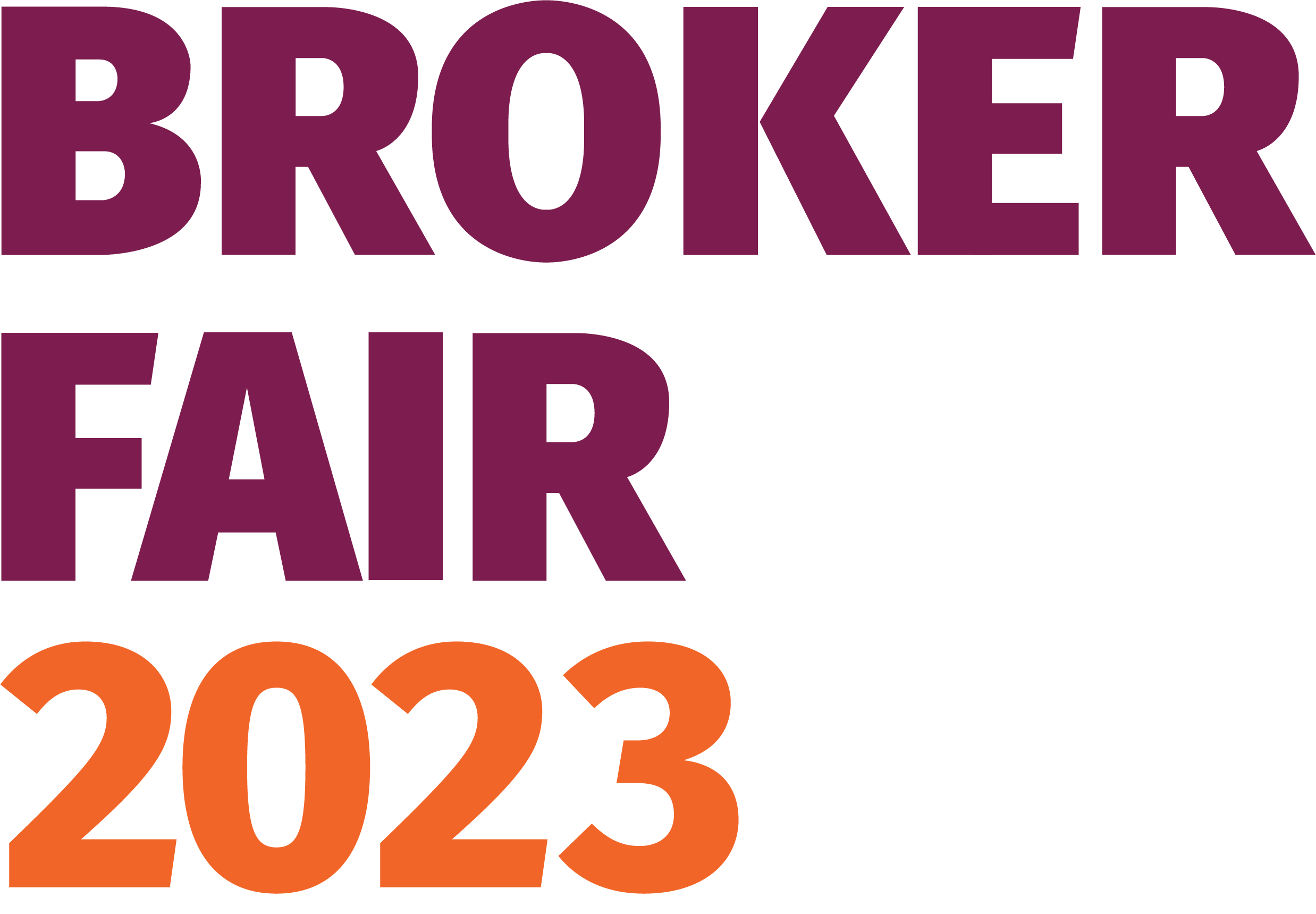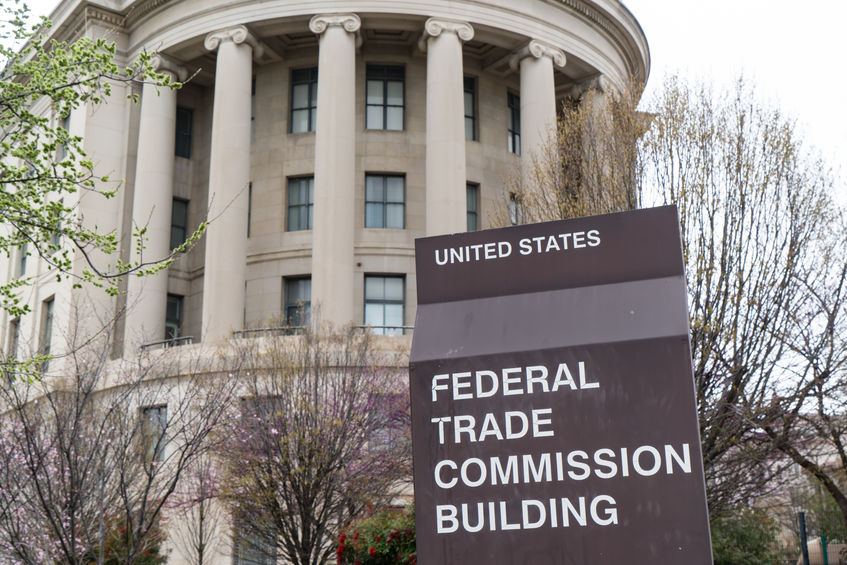Related Headlines
| 01/31/2023 | Arsenal Funding secures $16M |
| 01/14/2022 | Arsenal Funding completes capital raise |
Stories
Square Loans Adds Monthly Payment Option, Tops $1B in Loans in Q2
August 4, 2023Block’s Square Loan subsidiary is adding another business loan feature to its arsenal, a monthly payment option “to serve larger sellers who wanted more visibility into managing their cash flow.”
The company had a major quarter by making 119,000 loans for a total of $1.10 billion in originations. The company has consistently ranked among the top online small business lenders in the country.
Square Loans said that 25% of its fixed payment loan customers so far have been “mid-market sellers,” small businesses that process more than $500,000 in annual card payment volume.
Who’s Speaking at Broker Fair
April 28, 2023 Broker Fair 2023 will take place on May 8th at the Hilton Midtown in New York City. This year’s sessions cover a diverse and timely array of subjects that will help any broker or funding shop prepare for success. They include:
Broker Fair 2023 will take place on May 8th at the Hilton Midtown in New York City. This year’s sessions cover a diverse and timely array of subjects that will help any broker or funding shop prepare for success. They include:
- How to Determine a Product Fit
- Transacting Deals in 2030
- Expanding Your Funding Arsenal
- Investing in Deals
- Optimizing Your Brokerage for Success
- Debunking Industry Myths
- The State of Funding
- ERTC and Other Value Added Products
- Preparing for the New York Disclosure Law
Who’s Speaking?! Check it Out!
All Registered Sales-based Financing Providers in Virginia (As of 3-29-23)
April 2, 2023Is the revenue-based financing provider you do business with registered to operate in Virginia? On July 1, 2022, Virginia’s commercial financing disclosure law went into effect and with that the necessity to register one’s business. As of March 29, 2023, 101 companies had registered. This is the official list of registered sales-based financing providers as of that date (yellow means it has been added since our last update):
- Advance Servicing Inc.
- Accredited Business Solutions LLC dba The Accredited Group
- Advance Funds Network LLC dba Advance Funds Network
- AdvancePoint Capital LLC dba advancepoint
- Ally Merchant Services LLC
- Alpine Funding Partners, LLC
- Business Capital LLC
- Byzfunder NY LLC dba Tandem dba Nano-FI
- Bridge Capital Services, LLC
- CFG Merchant Solutions, LLC
- Clarify Capital II LLC dba Clarify Capital
- Cloudfund VA LLC dba Cloudfund LLC
- Capflow Funding Group Managers LLC
- Clear Finance Technology (U.S.) Corp. dba Clearco
- Coast Premier LLC dba Coast Funding
- Commercial Servicing Company, LLC
- Corporate Lodging Consultants, Inc.
- Crown Funding Source LLC dba Crown Funding Source
- Diesel Funding LLC
- Direct Capital Source Inc.
- Dealstruck Capital LLC
- EBF Holdings, LLC
- Essential Funding Group Inc
- Errant Ventures LLC
- FC Capital Holdings, LLC FundCanna
- Fidelity Funding Group LLC
- Front Capital LLC
- Finova Capital, LLC
- Fintegra, LLC
- First Data Merchant Services LLC
- First Path Capital Ventures LLC dba First Path Capital
- FleetCor Technologies Operating Company, LLC
- Flexibility Capital Inc.
- Fora Financial East LLC
- Forward Financing LLC
- Fox Capital Group Inc.
- Fundamental Capital LLC
- Funding Metrics, LLC dba Quick Fix Capital
- Good Funding, LLC
- Granite Merchant Funding, LLC
- Invision Funding LLC
- Itria Ventures LLC
- Jaydee Ventures, LLC dba 1 West Capital dba 1 West Commercial
- Kapitus LLC
- Knight Capital Funding III, LLC
- Lexington Capital Holdings Ltd
- LG Funding LLC
- Legend Advance Funding II, LLC dba Legend Funding
- Liberis US Inc.
- Libertas Funding, LLC
- Liquidibee 1 LLC dba Liquidibee LLC dba Altfunding.com
- Loanability, Inc.
- Millstone Funding Inc.
- National Funding, Inc.
- Nav Technologies, Inc.
- Orange Advance LLC
- Pearl Alpha Funding, LLC
- Pearl Beta Funding, LLC
- Pearl Delta Funding, LLC
- Proto Financial Corp.
- PWCC Marketplace, LLC
- Parafin, Inc.
- PayPal, Inc.
- Payability Commercial Factors, LLC
- Pinnacle Business Funding LLC dba Custom Capital USA dba EnN OD Capital
- Platform Funding LLC
- Prosperum Capital Partners LLC dba Arsenal Funding
- QFS Capital LLC
- RFG USA Inc.
- Rival Funding, LLC
- Riverpoint Financial Group Inc.
- Rocket Capital NY LLC
- ROKFI LLC
- Ruby Capital Group LLC
- Rapid Financial Services, LLC
- Reliant Services Group, LLC
- Retail Capital LLC dba Credibly
- Revenued LLC
- Rewards Network Establishment Services Inc.
- Secure Capital Solutions Inc.
- Sky Bridge Business Funding, LLC
- SMB Compass LLC dba SMB Compass
- Sunrise Funding LLC
- Santa Barbara Tax Products Group, LLC
- SellersFunding Corp.
- Sharpe Capital, LLC
- Shine Capital Group LLC
- Shopify Capital Inc.
- Shore Funding Solutions Inc.
- Streamline Funding, LLC
- Stripe Brokering, Inc.
- The LCF Group, Inc.
- Unique Funding Solutions LLC
- United Capital Source Inc.
- Upfront Rent Holdings LLC
- Upper Line Capital LLC
- Vader Servicing, LLC
- Velocity Capital Group LLC
- Vivian Capital Group LLC
- Vox Funding, LLC
- ZING Funding I, LLC
All Registered Sales-based Financing Providers in Virginia (List)
March 11, 2023Is the revenue-based financing provider you do business with registered to operate in Virginia? On July 1, 2022, Virginia’s commercial financing disclosure law went into effect and with that the necessity to register one’s business. As of March 8, 2023, this is the official list of registered sales-based financing providers:
- Advance Servicing Inc.
- Accredited Business Solutions LLC dba The Accredited Group
- Advance Funds Network LLC dba Advance Funds Network
- AdvancePoint Capital LLC dba advancepoint
- Ally Merchant Services LLC
- Alpine Funding Partners, LLC
- Business Capital LLC
- Byzfunder NY LLC dba Tandem dba Nano-FI
- Bridge Capital Services, LLC
- CFG Merchant Solutions, LLC
- Clarify Capital II LLC dba Clarify Capital
- Cloudfund VA LLC dba Cloudfund LLC
- Capflow Funding Group Managers LLC
- Clear Finance Technology (U.S.) Corp. dba Clearco
- Coast Premier LLC dba Coast Funding
- Commercial Servicing Company, LLC
- Corporate Lodging Consultants, Inc.
- Crown Funding Source LLC dba Crown Funding Source
- Diesel Funding LLC
- Direct Capital Source Inc.
- Dealstruck Capital LLC
- EBF Holdings, LLC
- Essential Funding Group Inc
- Errant Ventures LLC
- FC Capital Holdings, LLC FundCanna
- Fidelity Funding Group LLC
- Front Capital LLC
- Finova Capital, LLC
- Fintegra, LLC
- First Data Merchant Services LLC
- FleetCor Technologies Operating Company, LLC
- Flexibility Capital Inc.
- Fora Financial East LLC
- Forward Financing LLC
- Fox Capital Group Inc.
- Fundamental Capital LLC
- Funding Metrics, LLC dba Quick Fix Capital
- Good Funding, LLC
- Granite Merchant Funding, LLC
- Invision Funding LLC
- Itria Ventures LLC
- Jaydee Ventures, LLC dba 1 West Capital dba 1 West Commercial
- Kapitus LLC
- Knight Capital Funding III, LLC
- Lexington Capital Holdings Ltd
- LG Funding LLC
- Legend Advance Funding II, LLC dba Legend Funding
- Liberis US Inc.
- Libertas Funding, LLC
- Liquidibee 1 LLC dba Liquidibee LLC dba Altfunding.com
- Loanability, Inc.
- Millstone Funding Inc.
- National Funding, Inc.
- Nav Technologies, Inc.
- Pearl Alpha Funding, LLC
- Pearl Beta Funding, LLC
- Pearl Delta Funding, LLC
- Proto Financial Corp.
- PWCC Marketplace, LLC
- Parafin, Inc.
- PayPal, Inc.
- Payability Commercial Factors, LLC
- Pinnacle Business Funding LLC dba Custom Capital USA dba EnN OD Capital
- Platform Funding LLC
- Prosperum Capital Partners LLC dba Arsenal Funding
- QFS Capital LLC
- RFG USA Inc.
- Rival Funding, LLC
- Riverpoint Financial Group Inc.
- Rocket Capital NY LLC
- ROKFI LLC
- Ruby Capital Group LLC
- Rapid Financial Services, LLC
- Reliant Services Group, LLC
- Retail Capital LLC dba Credibly
- Revenued LLC
- Rewards Network Establishment Services Inc.
- Secure Capital Solutions Inc.
- Sky Bridge Business Funding, LLC
- SMB Compass LLC dba SMB Compass
- Santa Barbara Tax Products Group, LLC
- SellersFunding Corp.
- Sharpe Capital, LLC
- Shine Capital Group LLC
- Shopify Capital Inc.
- Shore Funding Solutions Inc.
- Streamline Funding, LLC
- Stripe Brokering, Inc.
- The LCF Group, Inc.
- United Capital Source Inc.
- Upfront Rent Holdings LLC
- Upper Line Capital LLC
- Vader Servicing, LLC
- Velocity Capital Group LLC
- Vivian Capital Group LLC
- Vox Funding, LLC
- ZING Funding I, LLC
Rapid Finance Has Evolved Into a Three-Piece Business
October 12, 2022 Historically, Rapid Finance has been a lender, but over the last few years the company has expanded into other areas including portfolio servicing and technology. It’s a three-piece business, one that now includes a new wholly owned subsidiary, Thrive.
Historically, Rapid Finance has been a lender, but over the last few years the company has expanded into other areas including portfolio servicing and technology. It’s a three-piece business, one that now includes a new wholly owned subsidiary, Thrive.
Thrive is described as an end-to-end digital lending platform that can be used by banks, credit unions, or other organizations to offer small business loans faster and easier to their customers.
Kunal Sehgal, co-founder and CEO at Thrive, said that Thrive’s technology can handle everything “from the application intake, to actual data collation and aggregation, to underwriting to decisioning, to origination to closing, and then servicing as well.”
The product gives Rapid a unique tool in its arsenal, given the company’s background. Will Tumulty, CEO at Rapid Finance, explained that Thrive’s technology will be greatly enhanced by Rapid’s own experience in the lending business.
“If you want to do a partnership with Rapid [through Thrive], you’re not just signing up for software,” Tumulty told deBanked. “You can get software, you can get potentially balance sheet access, you get expertise in servicing and credit management that Rapid has developed over more than 15 years in small business lending. And we think that’s a big difference for companies that are looking for a partner to help them get into the small business lending space.”
The acquisition was announced on October 3rd at American Banker’s Small Business Banking conference and is part of Rapid’s recent corporate rebrand and restructuring, which includes a new logo and website.
RCG Advances Permanently Banned From MCA Business by FTC
June 6, 2022 It’s déjà vu. Five months after the FTC successfully banned someone from engaging in the MCA business, the agency has secured a similar outcome from additional defendants. This time it’s RCG Advances and its operator that are banned, according to the final settlement announced by the parties. In addition, RCG is required to make an upfront payment of $1.5M to the FTC and refund $1.2M to its previous customers that it had allegedly deceived.
It’s déjà vu. Five months after the FTC successfully banned someone from engaging in the MCA business, the agency has secured a similar outcome from additional defendants. This time it’s RCG Advances and its operator that are banned, according to the final settlement announced by the parties. In addition, RCG is required to make an upfront payment of $1.5M to the FTC and refund $1.2M to its previous customers that it had allegedly deceived.
The penalty may appear rather small in the big picture, but it is possibly as strong an outcome as the FTC could’ve hoped to obtain given the odd circumstances that befell the case. For example, the FTC filed its suit against RCG in June 2020 under Section 13(b) of the FTC Act, one of the most common tools in its legal arsenal. Less than a year later, the Supreme Court of the United States ruled that despite long-standing precedent, 13(b) did not give the FTC legal authority to obtain monetary relief, which from the FTC’s point of view, defeated the entire purpose of bringing such claims. In light of the ruling, the FTC was forced to change its strategy in the RCG case. In May 2021, the FTC asked the Court if it could amend its lawsuit to state that what the defendants had actually done all along was violate the Gramm-Leach-Bliley Act. It was perhaps a more difficult path forward.
By January, the first settlement was announced. This RCG settlement now follows that. One defendant in the case has not settled and the proceedings are still ongoing.
Lawyers Weigh in on Champion Auto Sales, LLC v. Pearl Beta Funding, LLC
March 22, 2018In light of the recent Champion Auto Sales, LLC et al. v Pearl Beta Funding, LLC decision, which decided that the particular MCA contract at issue “was not a usurious transaction,” deBanked spoke to a handful of lawyers, including the plaintiff’s lawyer, Amos Weinberg, to get their thoughts on the decision.
“The contract at issue in Champion Auto v. Pearl Beta Funding was really no different than the contracts reviewed over a hundred years ago by the United States Supreme Court, in Home Bond Co. v. McChesney, 239 U.S. 568 [1916], where our nation’s highest court agreed that “the transactions were really loans, with the accounts receivable transferred as collateral security,” and “[i]n so far as the contracts in question here use words fit for a contract of purchase they are mere shams and devices to cover loans of money at usurious rates of interest.” Like most patrons of funding providers, Champion Auto was a one-person company that needed immediate, overnight cash. Presiding Justice Rolando T. Acosta of the Appellate Division remarked, at the argument, that Champion was a “sophisticated” party that “knew what they were getting into.” It is therefore painfully obvious that even though the NYS Legislature criminalized and voided loans to corporations exceeding 25% interest, and even though all victims of loan sharking knew what they were getting into, the courts are loathe to be used as escape hatches for companies trying to get out of paying back loans.”
Giuliano, McDonnell & Perrone, LLP
“It’s an appellate ruling a lot of people have been waiting for. It handles the usury issue in passing, almost as if it goes without saying.”
Hudson Cook, LLP
“The court confirmed that under New York law, a properly structured MCA transaction is not a loan. But I want folks to focus on the ‘properly structured’ piece of that…The court’s decision did not indicate much. But it did say that based on the documentary evidence, which is the contract, that the transaction was not a loan. So it’s important for folks to understand that for [an MCA contract] not to be a loan, it needs to be properly described…this case really shows us how important the contract is.
This case does not mean that all MCA companies are all in the clear. What it means is that MCA companies with properly drafted contracts, and good practices and procedures, are not making loans.”
Harris Beach, PLLC
“First of all, it was a unanimous decision by the three justices in the first department. That doesn’t always happen, so that’s a good thing. I personally would have liked to have seen more discussion out of the appellate department, but the language that’s there happens to be great for the industry. The one thing that I would caution, though, is not to interpret that all merchant cash advances are outside of transactions that would be subject to usury because it really is dependent on the language of the agreement.
[The decision] is a great tool in the arsenal, but I don’t see it as the tool that is going to prevent challenges.”
Hudson Cook, LLP
“This is a very important decision because New York State has a high volume of merchant cash advance companies…so having favorable case law in New York is great for the industry.”
Mavrides, Moyal, Packman, Sadkin
“I am very pleased with the outcome. There are more cases [to be decided], but this is very beneficial. It’s a win for the industry and I hope to see other decisions go in the favor of the advance industry.”
Platzer, Swergold, Levine, Goldberg, Katz & Jaslow, LLP
“The impact of the Champion decision was direct. We represent several MCA clients and we have a number of cases where Amos Weinberg is representing the merchant. And in one of our cases where a motion to open up a default judgment is at issue, the judge’s law clerk directly emailed us and wants to conference the case based on the Champion Auto Sales decision.”
[Lafont also pointed out that even though it was a short decision, one of its two citations was to Feld v Apple Bank for Sav., which deals with overdraft protection and has interesting parallels to MCA.]
Platzer, Swergold, Levine, Goldberg, Katz & Jaslow, LLP
“Based on the email we just received from the court clerk today, this decision could expedite [future] litigation, and it could decrease certain attorney’s fees for a lot of MCA companies involved in this litigation.”
The ‘Loan’ Star State – Texas is an alternative finance nexus
June 15, 2017
We’re at Able Lending in Austin, Texas, a financial technology company occupying three floors deep in the heart of the Seaholm power plant overlooking Lady Bird Lake. The fortress-like building anchors an inner-city complex of offices and residences, chic restaurants, boutique shops, and a Trader Joe’s.
Once the main source of electricity for Texas’s capital city, the natural gas-fired boilers have given way to a warren of glassed-in offices and meeting rooms connected by angular metallic stairways and a carpeted mezzanine.
It is here, in a tiny conference room, that Will Davis, a slim man of 35 and an alumnus of Harvard Business School, is drawing a bell curve on a whiteboard. Dressed for the balmy Texas weather in tan Bermuda shorts, a black tee-shirt and Nike running shoes, the company’s chief executive and co-founder is explaining how Able’s friends-and-family lending formula “widens” the risk curve.
“We all compete here in this box on price,” Davis says, drawing a square at the topmost point of the bell curve, indicating where the near-prime borrowers abide and where lenders are crowded in pursuit. But when loans from friends and family form 10%-15% of the total loan, he says, drawing squiggly lines just to the left of the box, a cohort with less-than-stellar credits now becomes credit-worthy.
Because of the “peer pressure” and “behavioral change” exerted by the involvement of family and friends, the formula produces a “positive-selection effect on the loan portfolio” Davis says, declaring: “We can serve more of the market.”
It all sounds very business-schoolish. But here’s the bottom line: Able’s lending model sharply reduces both risk and borrowing costs, allowing it to go head-to-head with national rivals like Funding Circle, Bond Street, OnDeck and StreetShares. Thanks in large part to its reduced risk, asserts Able’s director of development, 30-year-old Matt Irving, the Austin fintech can lend twice as much money as its competitors at half the interest rate.
Since opening its doors and firing up its computers in the fourth quarter of 2014, Able’s average loan size has climbed to $231,200 from $100,000. Of that, an average of 3.2 “backers” have accounted for $40,691, or 17.6% of the average total loan amount. The average “blended” annual percentage rate is 16.41%.

Meanwhile, Able, which has made some $48 million in loans to entrepreneurs through the end of April, 2017, reports CEO Davis, is itself on sound financial footing. According to the data-services firm Crunchbase, Able has raised $12.5 million in three rounds of venture capital financing from 21 investors. Principal equity financiers are Peter Thiel’s Founders Fund, Peterson Ventures, RPM Ventures, and Blumberg Capital. On Sept. 27, 2016, moreover, Able added another $100 million to its arsenal in debt financing from Community Investment Management, a San Francisco investment firm. Borrowers include owners of food trucks and apparel shops; professionals including doctors, dentists, veterinarians, and accountants; “creatives” like public relations and advertising firms; and construction companies. Since its inception, Davis says, just one borrower has defaulted, resulting in an $85,000 charge-off.
So far in 2017, the company has lent out nearly $15 million in the first quarter, but it’s on track to make $80 million this year. “We’re ramping up,” Davis declares.
Welcome to fintech in the Lone Star State. While everything may be bigger in Texas, as the saying goes, that’s not quite true of financial technology. The geographic contours of fintech operations are roughly 60% in California (especially Silicon Valley/San Francisco), 30% New York, and 10% scattered about the rest of the country, says 40-year-old Mihir Korke, the San Francisco-based chief marketing officer at Able.
Nonetheless, Texas offers fertile ground for the burgeoning fintech industry. The vaunted Texas business climate promises a relaxed regulatory regime, the absence of either a personal or corporate income tax, and a lower cost of living. All of which were cited by Able Lending, as well as an additional pair of fintech companies that specialize in factoring and merchant cash advances: Jet Capital, located in North Richland Hills in the Dallas-Fort Worth “metroplex”; and Ironwood Finance in Corpus Christi, a port city on the Gulf of Mexico.
“What’s interesting about fintech companies is that they can choose to locate where they want to do business,” says Erin Fonte, an attorney at Dykema Cox Smith in Austin whose legal practice includes mobile payments, mobile wallets and financial technology. “They don’t necessarily get a regulatory advantage because much of what they do is based on their customers’ location,” says Fonte, who is currently serving as a member of the Federal Reserve’s Faster Payments Taskforce. “That said,” she adds, “some companies have chosen to locate in Texas because of the labor and talent pool, because it’s a good source of venture capital, and it’s more affordable.”

Jet Capital’s 42-year-old chief executive, Kenneth Wardle, confirms many of Fonte’s observations. “So far, Texas has been friendly to MCA companies,” he says, using the initials for “merchant cash advance.” Especially favorable to his industry is the fact that “Texas regulators do not define an MCA as a loan,” he adds.
Prior to co-founding Jet Capital with chief operating officer Allan Thompson, 49, Wardle served as a portfolio manager at Exeter Finance Corp, a $3 billion company in nearby Irving which specializes in subprime auto financing. Wardle has also held leadership positions at AmeriCredit Corp., now GM Financial, and Drive Financial, now Santander Consumer USA.
His 20-year background has included the gritty work of repossessing cars when owners fell into arrears on their auto loans. “Most of my career in auto finance was in risk management and I’ve driven a repo truck,” he says. “You take off with the car right away and then chain it down after you’ve gone a couple of blocks so you don’t lose it out on the highway.”
Backed by more than $5 million in equity financing from a family office in Puerto Rico, Jet Capital makes cash advances of $25,000-$30,000, on average, for working capital.
The sweet spot for Jet’s financings are retail establishments, trucking companies, hair-and-nail spas, and medical doctors. Doctors in particular are prime candidates for a Jet cash advance. “They have a pretty good gap between when they perform services and when they get paid by insurance companies” during which they have to cover payroll expenses and overhead, Wardle notes. Prospecting for customers is done largely through independent sales offices, direct mail, and pay-per-click services offered by Google, among additional online channels.
“Our defaults are relatively in line with expectations” and were largely confined to the first year of business, Wardle says. “We made some underwriting and verification changes last September and October,” he adds, “and we changed our minimum credit scores. Since then we’ve seen defaults migrate in the right direction.”
 Since Wardle and Thompson took occupancy of an empty office outside Fort Worth in October, 2015, Jet has grown to 12 employees who today have “a variety of roles” says Thompson, citing sales, underwriting, customer service, collections, analytics, and information technology. “They wear a lot of hats and there’s a lot of cross pollination,” he says.
Since Wardle and Thompson took occupancy of an empty office outside Fort Worth in October, 2015, Jet has grown to 12 employees who today have “a variety of roles” says Thompson, citing sales, underwriting, customer service, collections, analytics, and information technology. “They wear a lot of hats and there’s a lot of cross pollination,” he says.
Looking ahead, Wardle foresees Jet expanding its product line beyond merchant cash advances to offer lines of credit and installment loans. “Our goal is to be a one-stop, nonbank financing solution,” Wardle says.
Kevin Donahue, 37, owner of Ironwood bootstrapped the South Texas company, which opened in 2013 using personal savings of $1.5 million remaining from the sale of mobile home parks in South Dakota and Texas. He also plowed earnings into Ironwood from a subsequent job as a commercial loan broker.
Donahue, who grew up in a family of fishermen on the Oregon and California coasts and is a 2006 graduate of California Polytechnic State University at San Luis Obispo, says that he turn up in Corpus Christi somewhat by accident. While operating the mobile home park in nearby Kingsville, he got married, started a family, and put down roots.
With 20 employees, Ironwood focuses on providing merchants cash advances in the $5,000 – $50,000 range, Donahue says, “but we can go up to $1 million.” The average cash advance – usually $10,000-$15,000 – is put to use as working capital by what he dubs “Main Street” businesses: restaurants, boutiques, trucking and transportation companies, professionals, and contractors. Ironwood charges clients factoring fees that are collected via ACH.
“Many times (these businesses) don’t qualify for bank loans,” Donahue says. And even when they do qualify, he notes, “banks take forever – up to three months – while we’re using our own money and can do it in three days. We’re very low on requiring a lot of documents.”
For his part, Donahue wants to see a customer’s bank statements, a photo I.D., voided checks, and a financial report. But, he says: “Cash flow is much more important than financials.”
Clients typically find their way to Ironwood through the website, although they often arrive through referrals from brokers and real estate agents, attorneys, accountants and “anyone doing commercial lending,” he says. Donahue says he closed down a call center. “The way to get leads is more through relationships than marketing,” he says.
Trucking companies are important customers. “They work on thinner margins, the barriers to entry are lower, sometimes their customers don’t pay their bills,” Donahue says of the industry’s economics. “They have huge expenses for fuel, payroll, insurance – and they might not get paid (by their customers) for 30 days or more.”
Ironwood’s advance for a million dollars, cited earlier, was made to a trucking company in Midland, Texas, which hauled both general freight and oilfield equipment. The money was put to use both to smooth out cash flow and as growth capital. The trucking concern “used part of that for expansion, making down-payments with Volvo or Peterbilt,” Donahue recalls.

Backstopped by the titles for 18 trucks valued at roughly $1.5 million, the deal was structured as a three-year, sale-leaseback agreement with “no interest” but rather a fee, Donahue says. Payments were $32,000 monthly, he says, amounting to $152,000 above the advance.
Donahue has no trouble justifying the steep fee schedules. Not only does he release money quickly but in many instances Ironwood has stepped in to bail out businesses that could have gone belly-up. He cites a trucker in the Midwest who had a “very lucrative” business hauling Boeing jet engines worth $30 million to Seattle where they could be worked on and returned to the planes for installment. In order to fulfill the contracts – which earned the hauler $25,000 monthly — the trucking company’s owner needed to purchase pricey insurance.
The owner, however, “had horrible credit,” Donahue says, largely the result of cash flow problems after investing in a special trailer for the jet engines, compounded by a messy divorce. To secure the $10,000 for the special insurance, the trucker sold Ironwood $14,000 of their future receivables. “For his investment of $4,000 he’s making $25,000-a-month forever,” Donahue explains.
Back in Austin, Able is gearing up for another round of capital-raising to bulk up staff and, according to Korke, win licensing to do business in California. At the same time, its friends-and-family credit structure is winning kudos for reaching what researcher David O’Connell calls “the unloaned.”
 A senior analyst at Aite Group, a Boston-based consulting firm, O’Connell recently completed a study disclosing that 35% of small and medium-sized businesses in the U.S were unable to obtain credit over a recent two-year period. Able’s lending model is “a good example of using covenants to structure a deal that brings down borrowing risk,” the Bostonian says. “It’s terrific.”
A senior analyst at Aite Group, a Boston-based consulting firm, O’Connell recently completed a study disclosing that 35% of small and medium-sized businesses in the U.S were unable to obtain credit over a recent two-year period. Able’s lending model is “a good example of using covenants to structure a deal that brings down borrowing risk,” the Bostonian says. “It’s terrific.”
Able’s staff doesn’t have to travel far to witness the fruits of their efforts. On Congress Avenue, in the heart of downtown Austin, is Jae Kim’s food truck offering Korean barbecue thanks to a $100,000-plus loan from the fintech lender. Kim, the founder and chief executive at food vendor Chi’lantro, enlisted his mother to pitch in $10,000. All told, family and friends ponied up 30% of the total loan.
In the three years since he hooked up with Able, Kim has gone on to bigger things, including a television appearance last November on Shark Tank that netted him $600,000 from celebrity investor Barbara Corcoran.
Chi’lantro is now operating five restaurants and four food trucks and as Kim disclosed on Shark Tank, annual sales topped $4.7 million last year.
Able Funds Chi'Lantro from Able Lending on Vimeo.
In an interview, he told deBanked that he counts himself fortunate to have gotten the Able “micro-loan.” It played a key role in generating the cash flow that qualified his company for a $200,000 bank loan backed by the Small Business Administration. “It was one of many opportunities, and now we have good relationships with banks,” he says.
And then, a little farther south, there’s Stephanie Beard’s “esby apparel,” a women’s clothing boutique named for her initials. Beard, 35, came to Austin in 2013 after a decade in New York designing men’s clothing at Tommy Hilfiger and Converse. Originally from North Carolina and a graduate of Appalachian State University, she had zero connections in Texas and only a little money.
But she had a big vision: She would open a store and design and sell top-quality, flattering clothes for women that had “a menswear mentality.” Men, she had discovered, buy fewer clothes than women. But men tend to buy clothes that are durable, clothes that they can wear again-and-again over many years. After she sold $65,000 worth of her casual clothing line on the website Kickstarter, Beard developed a fan base and was put in touch with Able. “Actually, they contacted me,” she says.
To qualify as an Able borrower, Beard assembled $20,000 from friends and family, she reports, including $2,500 from her future mother-in-law, another $2,500 from the proprietor of a dress shop that “wholesaled” her collection, and the rest from aficionados of her wares. Once that money was gathered, Able lent her $100,000 at a 10% APR in October, 2014, which enabled her to open her shop. The combined interest rate was 9.8%. Monthly payments have automatically been withdrawn from her business’s checking account.
She’s scheduled to repay both Able and her backers in full by this October. Total sales for the shop have cleared $1 million and Beard expects annual revenues for 2017 to hit $900,000. “A lawyer friend who helped me out with the paperwork pro bono told me that Able was practically giving money away,” she says. “I definitely was lucky.”
Arsenal is a new site sponsor... please welcome arsenal, a direct funder, as a new site sponsor! to learn more visit: :cool::):cool:... |

Debt Consolidation PERSONAL Loans for 620 credit.... arsenal if you need it. i have a small fund out of california that is funding 75-90 day consolidation loans to pay off personal credit cards and loans. the loan does not report to the use... |
The "Best Time to" Close - What it is, How it works, and Why it works... arsenal and capitalize on the opportunity in the storm!, , , , -fundingstrategist, , https://fundingstrat.com, , https://fundingstrat.com/the-best-time-to-close-what-it-is-how-it-works-and-why-it-works/... |
See Post... arsenal of offers for their merchants. we're not looking to pad a processing portfolio. we want to fund deals., , rean morse, merchant cash group, rean@merchantcashgroup.com, 866.610.6569 ext 47, 5745 sw 75th street, suite 110, gainesville, fl 32608... |





























